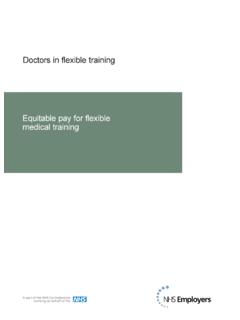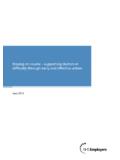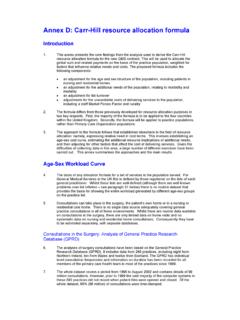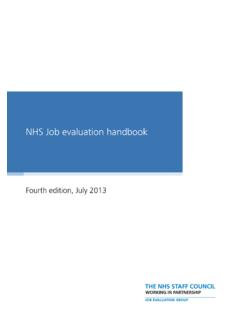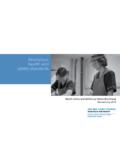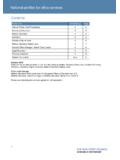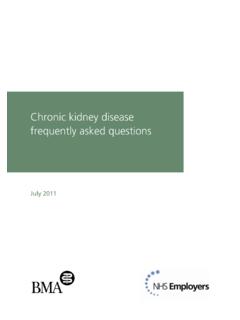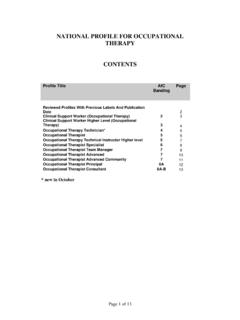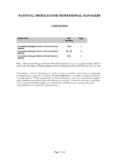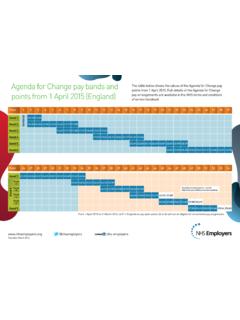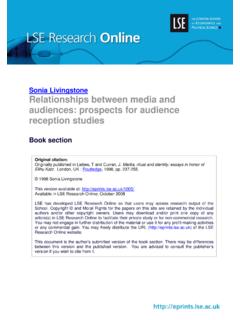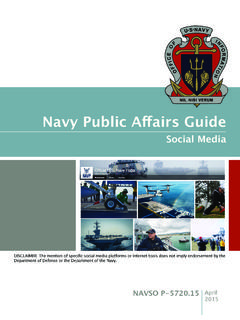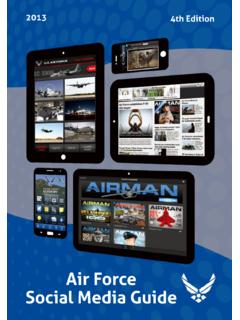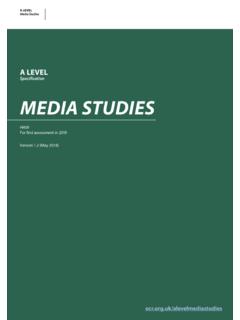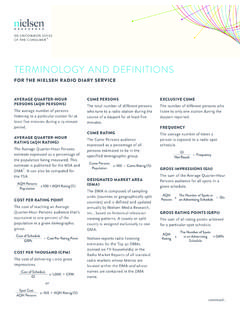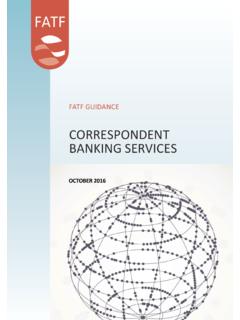Transcription of REWARD COMMUNICATIONS GUIDE - …
1 REWARD COMMUNICATIONS GUIDEHow to effectively communicate your REWARD offerIntroductionBenefits of working together Planning your COMMUNICATIONS Communicating rewardEvaluating REWARD Total REWARD Engagement NetworkCommunications checklistCommunications plan0304050710 CONTENTS111312 REWARD COMMUNICATIONS Guide2 This GUIDE is designed to help you to effectively communicate your organisation s REWARD and retention are the biggest challenges employers in the NHS are facing. By having an effective COMMUNICATIONS approach for REWARD , it will help you to meet these challenges by: Maximising the impact of your REWARD offer to successfully achieve your strategic goals.
2 Demonstrating your commitment and investment in your staff. Helping staff to fully appreciate and understand the value of working for your organisation. Reinforcing your organisational values and unique employer brand. This GUIDE includes top tips, a checklist and a template COMMUNICATIONS Signpost Read our GUIDE on communicating your offer which explains how an effective COMMUNICATIONS approach for REWARD will help you to meet recruitment and retention tells us that many NHS employees are not aware of the range of rewards and benefits offered by their employer. It s therefore more important than ever to make the most of what you re offering and how you are communicating it.
3 REWARD COMMUNICATIONS Guide3 Involving other departments such as health and wellbeing, occupational health, diversity and inclusion and recruitment, in the planning stages can identify other communication channels you could use. Staff side colleagues can help shape your REWARD COMMUNICATIONS plan and share key messages through their communication channels to reinforce your messages. Line managers can also help to communicate the key messages during briefings at team meetings. They understand what motivates their staff and can influence their experience at teams and departments could offer assistance to promote a wider understanding of the campaign and provide extra support.
4 Establishing positive working relationships from the start will help you gain ongoing support. KEY STAKE HOLDERS: COMMUNICATIONS team staff side line managers senior management team COMMUNICATIONS colleagues can provide feedback and suggestions on: creating a COMMUNICATIONS plan target audience key messages style and tone timescales social media other resources you may need (such as a photographer or designer).BENEFITS OF WORKING TOGETHERIt is important to involve key stakeholders when planning your REWARD COMMUNICATIONS . 4 REWARD COMMUNICATIONS GuideBenefits of Working togetherResource Signpost Take a look at the guidance in our REWARD strategy toolkit phase 3 implementation and communication to help you.
5 5 Key messagesBe clear about what you want to communicate. Use simple language and avoid using jargon and abbreviations. Using images on social media is a great way to get your message to edit your content and tone appropriately for each of the communication channels you use. Your COMMUNICATIONS team can help you with this if you are unsure. TimescalesIt is important to communicate the messages at the right time. Think about other activities that are taking place within the organisation and ascertain whether you take the opportunity to communicate your messages alongside. Think about national campaigns that you could use to reinforce your messages. Keeping your employees engaged throughout the year will ensure they understand the full range of benefits available and help appreciate the benefits package offered by your organisation.
6 What are you trying to achieve? Who is your target audience? What are your key messages? When is the best time to communicate your messages? What communication channels are appropriate? How to measure the impact of your REWARD COMMUNICATIONS ? PLANNING YOUR COMMUNICATIONS REWARD COMMUNICATIONS GuidePlanning your COMMUNICATIONS 1234566 Resource Signpost At the end of this GUIDE you will find a checklist and a comms plan template to help you plan your COMMUNICATIONS messages and strategy. Planning your REWARD COMMUNICATIONS will help you focus messages to your target audience. Use the following key stages to develop a successful COMMUNICATIONS plan.
7 6 REWARD COMMUNICATIONS GuidePlanning your COMMUNICATIONS PLANNING YOUR COMMUNICATIONS Resource Signpost SOCIAL media USE IN THE UK 6,763%of the mobile audience aged 25-34 use WhatsApp65%of Twitter users are under 3490%of Instagram users are under 35 Only 21%of LinkedIn users are under 3561%of mobile internet users aged 18-24 use SnapchatCOMMUNICATING REWARD ACROSS YOUR MULTI-GENERATIONAL WORKFORCET here are four different generations in the workplace1, each with their own preferred communication channels. Research shows that employees who understand their benefits will place a higher value on their overall REWARD package2. Communicating your rewards through a generation s preferred channels will help increase awareness and engagement of what you offer.
8 PREFERRED CHANNELS 3,4,7 Generation ZBorn: 1995 onwards Instant message appsAlways onlineAll social mediaGeneration YBorn: 1981-1995 Text messageSocial mediaInstagram and SnapchatGeneration XBorn: 1961-1980 Email and text messageUse images and graphicsTwitter and WhatsAppBaby boomersBorn: 1945-1960 Face-to-faceTelephone and emailFacebook and LinkedIn Our REWARD strategy toolkit provides tips on how to develop and communicate your us what you think about our products and resources: email Sources: 1. UK Commission for employment and skills report The future of work jobs and skills in 2030. 2. IES Report: The report between total REWARD and employee engagement, as commissioned by NHS Employers May 2016.
9 3. Talking about my generation: Exploring the benefits engagement challenge, Barclays Corporate and Employer Solutions, September 2013. 4. NHS Health Education England Mind the gap research report. 5. NHS Digital NHS workforce statistics, April 2016, provisional statistics. 6. Warren Knight The demographics of social media users in 2016. 7. Ofcom The COMMUNICATIONS market 2016 report. NHS Confederation 2016 AGE OF THE NHS WORKFORCE 5 Understanding the age of your workforce and how they like to be communicated with will help you plan and target your REWARD COMMUNICATIONS 34(23%)35 44 (25%)45 54(29%)55 64(16%)Under 25(6%)65+(2%)Branding Help staff recognise your REWARD offer by developing an identity for the REWARD package, this will make it stand out and help to increase engagement.
10 Think about how it fits with your organisation s existing branding. Bring all your benefits together in one place to make it really accessible for staff. Your target audienceIt is important to know your workforce and how they like to be communicated with. Communicating REWARD through your workforce s preferred channels will increase their awareness and engagement with what you offer. Budgets You will need to work out if any of your activities have costs associated with them which may affect some of your plans. Most of the communication channels listed in this GUIDE are available to use free of charge. There will be costs associated with printing leaflets, posters etc.
